Virtue & Power
Reflect on the ethical dilemmas implied by the pursuit of power.
June 24–28, 2024
Washington, DC
In the second week of Political Studies, we will consider Shakespeare’s depiction of tyranny and kingship, and how great literature can inform the study of politics.
Our first seminar will place Shakespeare’s Macbeth and Henry V in conversation with Machiavelli’s The Prince. Shakespeare’s treatment of princely rule broaches many of the themes discussed in The Prince, thus challenging us to consider how he might be testing the provocative claims of the notorious “Machiavel”—from the necessary qualities for a successful king to appearance vs. truth, the different demands of rulers in pagan and Christian times, and the role of war in domestic politics.
Our second seminar will focus on The Tempest, the story of how the Dukedom of Milan was lost and regained. Prospero’s study of the liberal arts contributes to his fall from power, but it also helps him preside over the small society of strange creatures on the remote island where the action of the play takes place. Through close study of one of Shakespeare’s greatest plays, students will meditate on the kind of education we need to engage well in political life.
Jenna Silber Storey on liberal education
This course is part of our residential Political Studies Program. Fellows participate in morning seminars and meet prominent men and women in public life over afternoon and evening sessions. Up to 32 fellows will be selected.
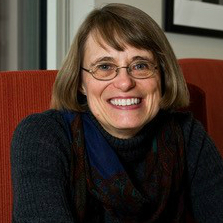
Vickie Sullivan is the Cornelia M. Jackson Professor of Political Science and teaches and studies political thought and philosophy. She also maintains teaching and research interests in politics and literature. She has published extensively on Montesquieu and Machiavelli and is the co-editor of Shakespeare’s Political Pageant.

Vickie Sullivan is the Cornelia M. Jackson Professor of Political Science and teaches and studies political thought and philosophy. She also maintains teaching and research interests in politics and literature.
She has published the monographs Montesquieu and the Despotic Ideas of Europe (2017); Machiavelli, Hobbes, and the Formation of a Liberal Republicanism in England (2004); and Machiavelli’s Three Romes: Religion, Human Liberty, and Politics Reformed (1996 and 2020). She is the editor of The Comedy and Tragedy of Machiavelli ; the co-editor of Shakespeare’s Political Pageant: Essays in Politics & Literature ; and the co-author of “Machiavelli’s Political Thought” in Oxford Bibliographies.
Her articles have appeared in The American Political Science Review, History of European Ideas, History of Political Thought, Political Theory, Polity, and Review of Politics.
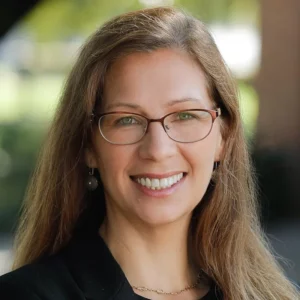
Jenna Silber Storey is a senior fellow in the Social, Cultural, and Constitutional Studies department at the American Enterprise Institute (AEI), and co-director of AEI’s Center for the Future of the American University. She is concurrently an SNF Agora Fellow at Johns Hopkins University, and a research fellow at the Civitas Institute at the University of Texas at Austin. She also serves on the executive committee of the Alliance for Civics in the Academy.

Jenna Silber Storey is a senior fellow in the Social, Cultural, and Constitutional Studies department at the American Enterprise Institute (AEI), and co-director of AEI’s Center for the Future of the American University. She is concurrently an SNF Agora Fellow at Johns Hopkins University, and a research fellow at the Civitas Institute at the University of Texas at Austin. She also serves on the executive committee of the Alliance for Civics in the Academy.
Dr. Storey’s work concentrates on liberal education, civic thought, and the relationship between the university and society. She has developed a series of initiatives in partnership with Johns Hopkins University to provide pathways for collaboration between JHU faculty and AEI scholars, to support ideologically heterodox students who aspire to careers in academia, and to host discussions to explore the emerging academic field of civic thought and practice.
Previously, Dr. Storey was assistant professor in politics and international affairs and the executive director of the Tocqueville Program at Furman University. In addition to Furman University, she has taught at the University of Chicago; the Buckley Program at Yale University; the Hertog Summer Studies Program in Washington, DC; and the Tikvah Fund in Princeton, New Jersey. Earlier she worked as executive assistant to the superintendent for the Boston University–Chelsea Schools partnership. She served as a board member of Veritas Preparatory School in Greenville, South Carolina, from 2019 to 2021, and now serves as a board member of the St. Jerome Institute in Washington, DC, the Center for Constitutional Liberty at Benedictine College, and the Honors College at Tulsa University.
Dr. Storey is the coauthor, with her husband, Benjamin Storey, of Why We Are Restless: On the Modern Quest for Contentment (Princeton University Press, 2021). Together, the Storeys are working on a book titled The Art of Choosing: How Liberal Education Should Prepare You for Life.
Dr. Storey’s work has been published in media outlets such as the New York Times, the Wall Street Journal, the Washington Post, National Affairs, Humanities, the Boston Globe, National Review, the Chronicle of Higher Education, Inside Higher Ed, American Purpose, Society, the New Atlantis, City Journal, the Claremont Review of Books, and First Things. She has lectured at institutions such as Oxford University, West Point, the City College of New York, American University, the University of Notre Dame, the Institute for Classical Education, and the American Council of Trustees and Alumni. She has also delivered papers at the American Political Science Association conference and other disciplinary conferences.
Dr. Storey has a PhD from the University of Chicago’s Committee on Social Thought and a BA from the University Professors Program at Boston University. She spent time in Germany as a visiting student at the University of Tübingen and as an exchange student at Dresden University.
Readings:
Discussion Questions:
Macbeth, Act I
Macbeth, Act II
Readings:
Discussion Questions:
Macbeth, Act III
Macbeth, Act IV
Readings:
Discussion Questions:
Macbeth, Act V
Henry V, Act I
Readings:
Discussion Questions:
Henry V, Act II
Henry V, Act III
Readings:
Discussion Questions:
Henry V, Act IV
Henry V, Act V
Readings:
Readings:
Readings:
Readings:
Readings:
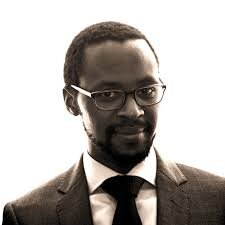
Kevin Kambo
Kevin Kambo is an assistant professor of philosophy at The University of Dallas. He specializes in ancient Greek philosophy, particularly Platonic psychology. He also has scholarly interest in philosophy of technology, liberal education, and philosophy and literature.
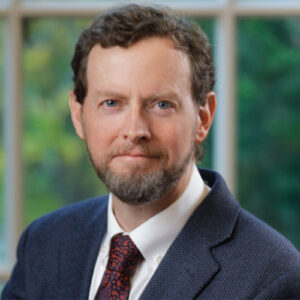
Benjamin Storey
Benjamin Storey is a senior fellow in Social, Cultural, and Constitutional Studies at the American Enterprise Institute (AEI), and co-director of AEI’s Center for the Future of the American University. He is concurrently an SNF Agora Fellow at Johns Hopkins University and a research fellow at the Civitas Institute at the University of Texas at Austin.
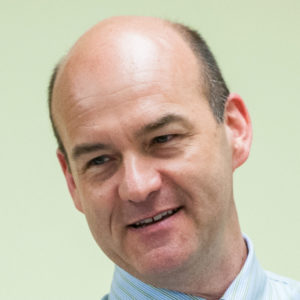
Robert C. Bartlett
Robert C. Bartlett is the Behrakis Professor of Hellenic Political Studies at Boston College. His principal area of research is classical political philosophy, with particular attention to the thinkers of ancient Hellas, including Thucydides, Plato, and Aristotle. He is the co-translator of a new edition of Aristotle’s Nicomachean Ethics.

Diana Schaub
Diana Schaub is a nonresident senior fellow at the American Enterprise Institute (AEI), where her work is focused on American political thought and history, particularly Abraham Lincoln, Frederick Douglass, African American political thought, Montesquieu, and the relevance of core American ideals to contemporary challenges and debates. Concurrently, she is Professor Emerita of Political Science at Loyola University Maryland, where she taught for almost three decades.

Ryan P. Hanley
Ryan Patrick Hanley is Professor of Political Science at Boston College. His research in the history of political philosophy focuses on the Enlightenment. He is the author of Our Great Purpose: Adam Smith on Living a Better Life and Love’s Enlightenment: Rethinking Charity in Modernity.

Daniel Burns
Daniel Burns is Associate Professor of Politics at the University of Dallas. His research in political philosophy focuses on the relation between religion and citizenship. He has recently served as a staffer for the U.S. Congress Joint Economic Committee and as a full-time contractor for the U.S. Department of Health and Human Services.
Henry Olsen
Henry Olsen, a senior fellow at the Ethics and Public Policy Center, studies and provides commentary on American politics. Mr. Olsen is an opinion columnist for The Washington Post, where he writes daily pieces focusing on politics, populism, foreign affairs and American conservative thought.
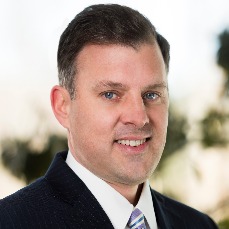
Flagg Taylor
Flagg Taylor is the Executive Director of the Center for Civics, Culture, & Society, at Miami University. His research specialty is in the history of political thought and American government, especially the question of executive power. He is Chair of the Academic Council of the Victims of Communism Memorial Foundation.
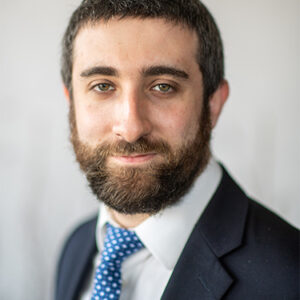
Charles Fain Lehman
Charles Fain Lehman is a fellow at the Manhattan Institute, working primarily on the Policing and Public Safety Initiative, and a contributing editor of City Journal. His work on criminal justice, immigration, and social issues has appeared in the Wall Street Journal and Tablet, among other publications.

Matthew Continetti
Matthew Continetti is the director of domestic policy studies and the inaugural Patrick and Charlene Neal Chair in American Prosperity at the American Enterprise Institute (AEI), where his work is focused on American political thought and history, with a particular focus on the development of the Republican Party and the American conservative movement in the 20th century.

M. Anthony Mills
Anthony (Tony) Mills is a senior fellow at the American Enterprise Institute, where he studies the federal government’s role in scientific research and innovation as well as how to integrate scientific expertise into our governing institutions. Dr. Mills holds a PhD and an MA in philosophy from the University of Notre Dame and a BA in philosophy, French, and comparative literature from Northwestern University.
Adam J. White
Adam J. White is the Laurence H. Silberman Chair in Constitutional Governance and senior fellow at the American Enterprise Institute, where he focuses on the Supreme Court and the administrative state. Concurrently, he codirects the Antonin Scalia Law School’s C. Boyden Gray Center for the Study of the Administrative State.
Gary J. Schmitt
Gary J. Schmitt is a senior fellow in the Social, Cultural, and Constitutional Studies program at the American Enterprise Institute (AEI), where he studies issues related to the American presidency, the U.S. constitution and its principles, and American civic life.
Vincent Phillip Muñoz
Vincent Phillip Muñoz is the Tocqueville Professor of Political Science and Concurrent Professor of Law at the University of Notre Dame.